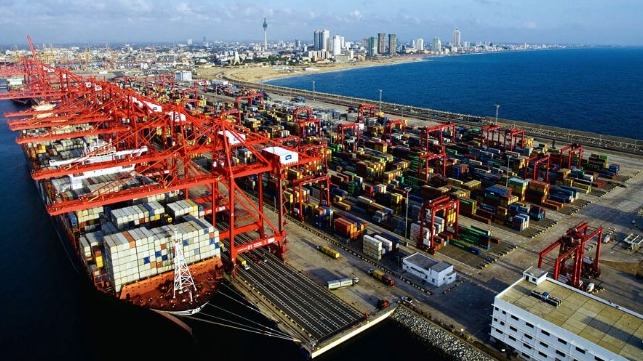
In a move that is seen as an attempt to counter China’s growing influence in the Pacific and especially in Sri Lanka, India’s Adani Ports announced a long-term deal to build and operate a new terminal in the Port of Colombo, Sri Lanka. The new West Container Terminal will compete with the Colombo International Container Terminal and the southern port of Hambantota, both of which are operated by China Merchants Port Holdings.
Previously, India and Japan had been working on an agreement to develop a terminal at Colombo, but that collapsed early in 2021 under domestic pressure as well as political considerations. India however was unhappy over China’s growing influence directly off its coast at neighboring Sri Lanka and based on its long ties with Sri Lanka was offered the opportunity to develop the West terminal. Sri Lanka issued an official letter of interest in March 2021.
Adani will join with John Keells Holdings, a local Sri Lanka conglomerate, becoming the largest foreign investor in Sri Lanka’s ports.
In a letter to the Colombo Stock Exchange, John Keells said that a Build, Own, Transfer Agreement was executed on September 30. The partnership will build and operate the terminal for 35 years before it transfers to the Sri Lanka Ports Authority. Adani will own a controlling 51 percent of the new company, with Keels holding 34 percent, and the remainder held by the SLPA. The total cost of the project will be approximately $650 million topping the estimated $500 million invested by China in buildings its facilities in Colombo.
The new West Container Terminal-1 will be a deep-water terminal with approximately 4,500 feet of dock at a depth of 65 feet. The terminal will have an annual capacity of 3.2 million TEUs. Construction is due to begin in 2022 with the first section opening within 24 months and completion within 48.
Opened in 2014, the Colombo International Container Terminal is operated by China Merchants Port Holdings Company, which owns 85 percent of the terminal company. They also have a 35-year lease on their facility. The Chinese promote the terminal as the “first and only deep-water terminal in South Asia capable of handling the largest vessels afloat.”
India’s concern over China’s influence dates back to 2014 when Chinese warships docked at the terminal. Sri Lanka has since barred the warships from its ports, but Sri Lanka remains a critical spot due to its strategic location on major shipping lanes and midway between Asia and the Middle East. China is pursuing a strategy of building economic and strategic outposts across Asia as part of its Belt and Road Initiative.
SOURCE READ THE FULL ARTICLE
https://www.maritime-executive.com/article/india-s-adani-to-build-sri-lanka-port-in-competition-to-chinese